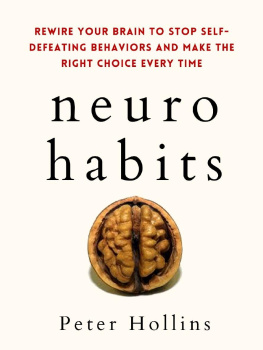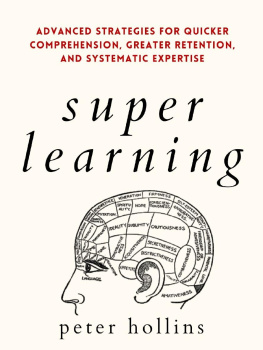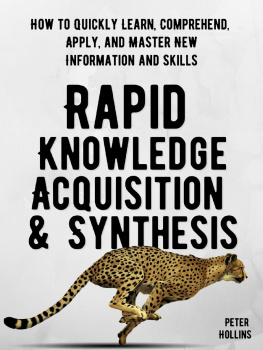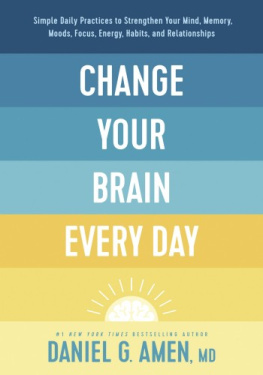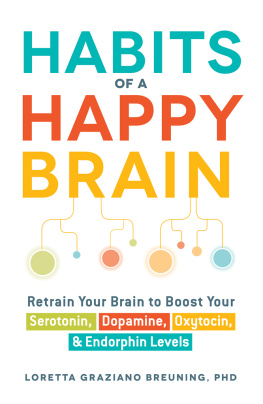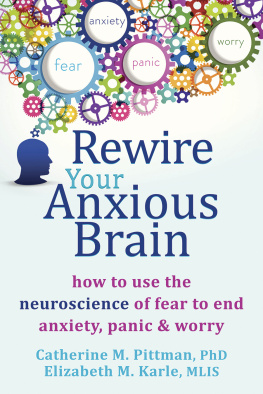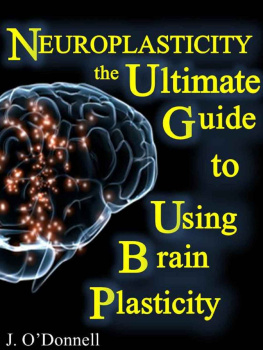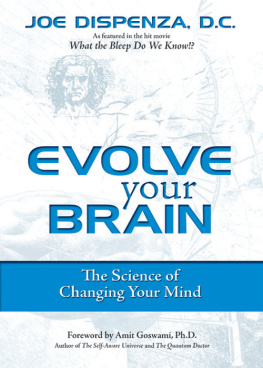Table of Contents
Neuro Habits :
Rewire Your Brain to Stop Self-Defeating Behaviors and Make the Right Choice Every Time
By Peter Hollins,
Author and Researcher at petehollins.com

< < CLICK HERE for your FREE 14-PAGE MINIBOOK: Human Nature Decoded: 9 Surprising Psychology Studies That Will Change the Way You Think. > >
--Subconscious Triggers
-- Emotional Intelligence
-- Influencing and Analyzing People

Table of Contents
Neuro Habits: Rewire Your Brain to Stop Self-Defeating Behaviors and Make the Right Choice Every Time
Table of Contents
Chapter 1. A Peek into the Science of Habits
Your brains superpower of neuroplasticity
What happens in the brain when habits form?
Dopamine and the pleasure principle
Chapter 2. Habit Formation Psychology
Habit formation from a psychological perspective
Making and breaking habits
Habit typology
New habitswhere we go wrong
Chapter 3. The Framework for Lasting Change
Good or badits all the same to the brain
How to create a habit
How to changenot breaka habit
Chapter 4. More of the Good, Less of the Bad
Commitment is better than willpower
Developing a keystone habit and other good habits
Breaking away from bad habits
Better yet, dont break them, replace them
Chapter 5. How to Short Circuit Yourself
Control your impulses
Visualization: seeing is believing
The If/then technique
Social and physical environment
Chapter 6. Design flaws in habit formation
B.J. Foggs Mistakes for Change
James Clears Mistakes That Cause New Habits to Fail
Summary Guide
Chapter 1. A Peek into the Science of Habits
What is a habit?
You might have worked your way through dozens of old habits today already, before reading this book. You didnt have to really think about any of these activitiesthe specific way you went about brushing your teeth, making coffee, checking your emails. Sure, the first time you ever performed one of these habits you probably had to pay full and focused attention, but after hundreds or even thousands of times repeating the same routines, you now complete them on autopilot. They are, in other words, habitual.
Many of us think of habits in terms of behavior. We try to eliminate bad habits or encourage better ones by using sheer force of willpower. We tend to think of habits as not sticking simply because were lazy, or were just not trying hard enough. But the fact is that habits are the external, behavioral manifestations of internal brain processeswhich have very little to do with willpower.
Habits are there for a reason. They are your brains shortcuts through life, or what are called heuristics, mental models used to process the familiar and expected patterns of experience. Habits help us save time and energy. If we can do something automatically and without thinking too hard about it, we save our attention for the truly difficult things. But habits are not just behaviorsthey are an external expression of a physical process unfolding in your brain.
The old saying goes, Neurons that fire together, wire together. This essentially means that when your brain repeats the same patterns over and over again, the neurons responsible are physically and literally wired in a fixed wayyour habit is physiologically programmed into your brain. Psychologists and neurologists have long understood that there exists a certain neural correlate to our everyday behavior, and that our fixed and routine habits actually map onto similarly fixed physiological structures in the brain.
Understanding exactly how and why habits form in the brain puts us in the best possible position to make real changes. Once we can see how the brains physiology and biochemistry connects seamlessly to our behavior, we can look with fresh eyes at our actions and the accompanying psychology. We can more effectively change ourselves, whether we want to quit smoking or wake up earlier or get out of the habit of negative self-talk.
Your brains superpower of neuroplasticity
Your brain possesses a truly marvelous characteristic called neuroplasticity. You were not born with a fully functional brain, but rather with the hardware and ability to learn, which then allowed your brain to form connections, to grow, and to acquire knowledge. The neuroplastic brain is one that can change. Its the reason you were able to develop bad habits in the first place; but its also the reason youll be able to break them and form new, more beneficial habits.
People are capable of behavioral change. And the brain is capable of physiological change to support it. Lets take a closer look:
Well consider habits in terms of the famous three-part habit loop outlined in Charles Duhiggs book, The Power of Habit. You might recognize this model in different forms, and under different names, but its main features are the same.
Part one is the trigger. This is a cue or signal that alerts your brain to enter into a kind of autopilot so that a previously learnt behavior can be executed. You know the state of mind youre in when you find yourself pulling the car up to your home with no recollection of the drive you made to get there? This is the state of mind Duhigg is talking about, and a trigger tells your brain to switch into this mode.
A trigger can be a person, a change in the environment, a certain time of day, even a word or symbol. The trigger for one behavior can be the actions of a previous behavior. For example, you always reach for a glass of wine when you get home from work. The trigger is the act of getting home, which basically tells your brain run the get-a-glass-of-wine program now.
Once youre in this mode, you play out the behavior itself, or the routine. Habits are proceduraltheyre typically a set of behaviors followed step by step, like the four or five little things you always do in the same order when you step into the shower every morning. A trigger can instigate the first behavior in a long string of habits.
The third step is the reward, which is what it sounds like: a pleasant outcome that helps to reinforce the behavior so that our brain knows what to return to the next time it encounters the same trigger. Granted, you might not be able to think of much reward in any of the little habits you perform every day, but somewhere along the line, your brain made the judgment that there was something valuable in these behaviors.
Rewards can be smallthe feeling that things are right in the world, a sense of order or stability, a feeling of completeness and familiarity. Rewards can even include the removal of something unpleasant or the threat of it.
This loop explains how certain behaviors and habits can carry on even when we rationally and consciously know that theyre bad for us, or when we no longer get any immediate satisfaction out of them. For example, it will suddenly be lunchtime, which is the trigger that reminds you to head outside for a smoke break, and before you know it in youre in that half-unconscious autopilot mode. It doesnt matter if you dont really enjoy smoking anymore; at some point, you did, and the sense of reward strengthened the habit.
So, this is what habit formation looks like from the outside, but whats going on in the brain?
Cognitive psychologists and neuroscientists attribute the creation and maintenance of habits to a part of the brain called the basal ganglia. Importantly, this is also a part of the brain associated with emotions, pattern recognition and memory. These brain mechanisms are essentialthey give human beings enormous flexibility and freedom to bank already mastered routines so that they can be done on autopilot while the rest of the brain focuses intently on more important issues.

